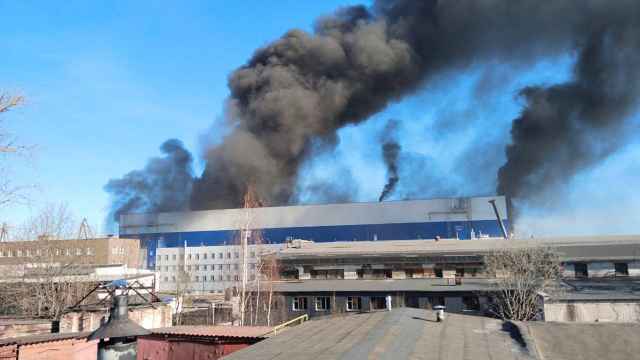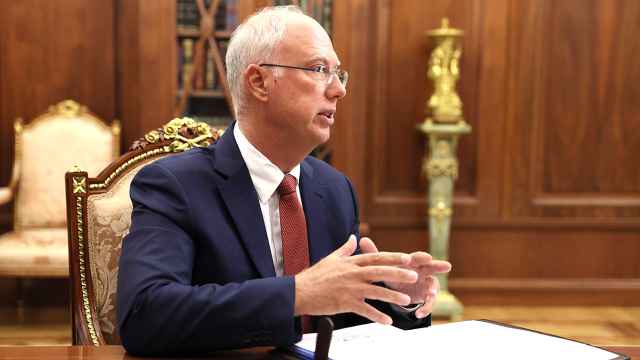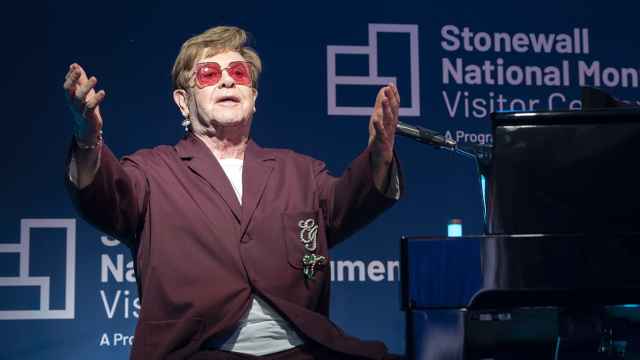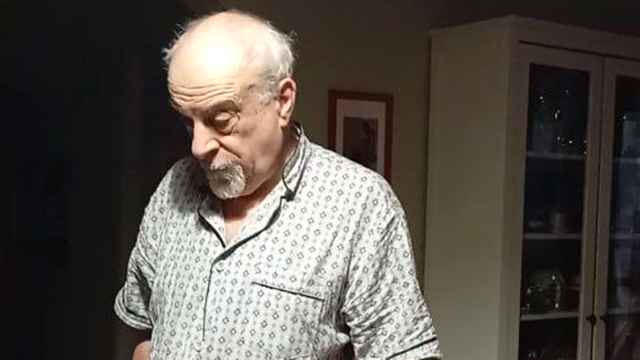The son of the country's financial intelligence chief works for state airline Aeroflot, where he is responsible for handling the company's cash and one of its top projects, Sheremetyevo's Terminal D.
Andrei Chikhanchin, son of Federal Financial Monitoring Service head Yury Chikhanchin, has been working for nearly nine months at the firm Terminal, according to state-run Vneshekonombank's quarterly report.
Relatively little is known about the 28-year-old. He worked at VEB's infrastructure department, where he was involved in transportation projects, and now he is deputy director of Aeroflot's corporate finance department.
The details of the younger Chikhanchin's education are kept private. In 2007, he defended a dissertation on regional infrastructure at the Institute of Regional Economic Research. His research adviser was Irina Rukina, an academician at the Russian Academy of Natural Sciences and a former Moscow City Duma deputy. She could not be reached for comment Tuesday.
In September 2009, Andrei Chikhanchin joined Terminal's board of directors as a nominee from Aeroflot, but he has no other posts within that company, a spokesperson said in response to questions from Vedomosti. The company does not publish its financial reports.
Terminal is managing the construction of Terminal D, one of Sheremetyevo's most expensive projects. The facility has cost Terminal's shareholders — Aeroflot, VEB and VTB (with 52.82 percent, 25 percent and 22.8 percent, respectively) — more than $1 billion.
Last year alone, Aeroflot had to borrow from state-run VTB and VEB $236.3 million to finish building the terminal, bringing the overall total of loans for the project to $811.7 million as of the end of 2009.
Chikhanchin's main employer, Aeroflot, is pleased with his work. "He's the only person in the company working on this entire sector. He does financial and investment derivatives, places temporarily free cash, and he's doing it fairly successfully. Not long ago he was given a raise," said his boss, Aeroflot financial director Shamil Kurmashov.
According to the airline's international financial reporting, it had short-term investments in stocks and bonds of $10.4 million at the end of 2009, with yields to maturity varying from 7.3 percent to 18 percent.
Chikhanchin has to his credit a cross-currency interest-rate swap that cut Aeroflot's costs to service a loan to a record low of 3.89 percent, Kurmashov said.
What's more, he said, Chikhanchin is coordinating the financial assets of Rosavia, a holding created by the Moscow city government and state-run Russian Technologies. Rosavia's assets are currently being handed over to Aeroflot.
Yekaterina Karasina, head of VEB's press service, confirmed that Chikhanchin no longer worked at the development bank, but declined further comment.
Yury Chikhanchin was on vacation and did not answer a call to his office.
The younger Chikhanchin is not the first child of a famous father to find work at VEB. Pyotr Fradkov, son of former prime minister and Foreign Intelligence Service chief Mikhail Fradkov, is a deputy head of VEB. Alexander Ivanov, son of Deputy Prime Minister Sergei Ivanov, also works there as a department head.
Security Council Secretary Nikolai Patrushev's son Alexander is the chief executive of state-run Rosselkhozbank, the country's fourth-largest lender by assets.
A Message from The Moscow Times:
Dear readers,
We are facing unprecedented challenges. Russia's Prosecutor General's Office has designated The Moscow Times as an "undesirable" organization, criminalizing our work and putting our staff at risk of prosecution. This follows our earlier unjust labeling as a "foreign agent."
These actions are direct attempts to silence independent journalism in Russia. The authorities claim our work "discredits the decisions of the Russian leadership." We see things differently: we strive to provide accurate, unbiased reporting on Russia.
We, the journalists of The Moscow Times, refuse to be silenced. But to continue our work, we need your help.
Your support, no matter how small, makes a world of difference. If you can, please support us monthly starting from just $2. It's quick to set up, and every contribution makes a significant impact.
By supporting The Moscow Times, you're defending open, independent journalism in the face of repression. Thank you for standing with us.
Remind me later.





